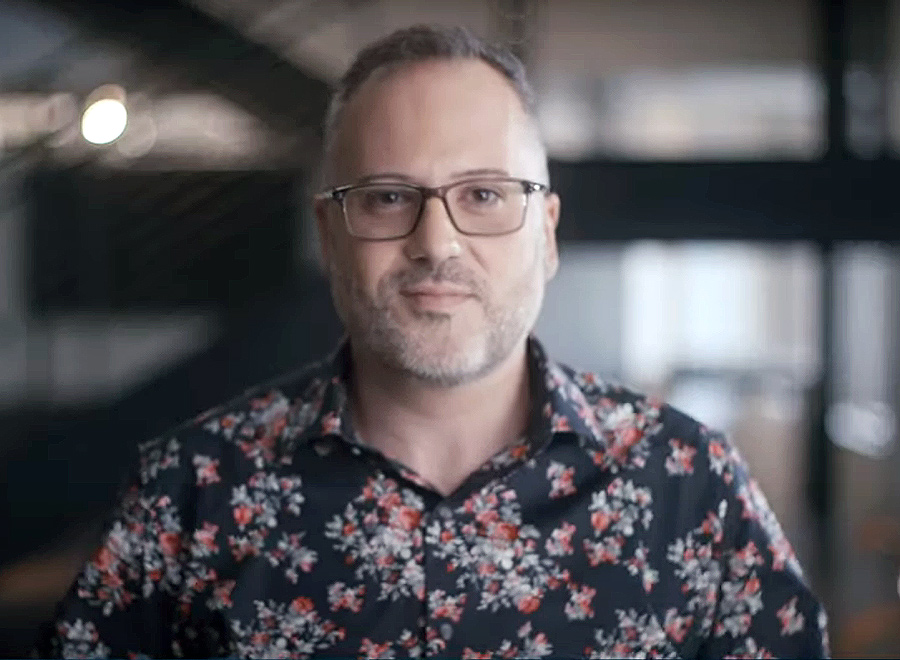
Concussions and serious traumatic brain injuries have increasingly become part of recent news stories. Traumatic brain injuries, or TBIs, can be the result of several causes, including the negligence or carelessness of others. Vehicle accidents, slips and falls, and workplace injuries are just some of the causes of brain injuries.
At Goodman Acker, we are here to help you recover compensation for a traumatic brain injury caused by another person’s reckless or negligent actions. If you think you have suffered a severe head injury due to someone else’s negligence, you first need to see a doctor. Brain injuries may be subtle, and symptoms may not appear for several hours or even days after the accident.
What is a Traumatic Brain Injury?
A traumatic brain injury, or TBI, is considered a serious impact on the brain. Although your brain is well-protected inside your skull, with layers of cushioning tissue between the brain and bone, a sudden sharp impact, such as during a car accident, can cause the brain to strike the inside of the skull.
Closed Head Trauma
The most common form of TBI is a concussion. In the past, it was thought that a concussion was just a mild injury, causing no lasting damage, but doctors now know that even a mild concussion can have lasting effects. Sports injuries, car accidents, and falls are common causes of major and minor concussions.
A diffuse axonal injury sometimes called a “shearing injury,” occurs when the brain is twisted or rotated violently due to outside forces, as can occur in rollover car accidents. This type of injury causes microscopic tears between the cells of the brain and can affect memory, behavior, and motor skills.
A hemorrhage is any type of bleeding on the brain. Bleeding can be in the brain itself (a stroke or aneurysm) or between the brain and the skull (a subdural hematoma). Both types put pressure on the brain. This is extremely dangerous because there is no room for swelling or bleeding inside the skull.
Open Head Trauma
Any injury with a break in the skull is called an open or penetrating head trauma. A skull fracture, gunshot, or industrial accident can cause this type of injury.
Penetrating injuries are hazardous because they introduce bacteria and dirt into the brain. Your brain is protected by a sterile fluid called cerebrospinal fluid (CSF). If this fluid begins to leak out, some of the protection around the brain is lost, and your brain can become infected.
If the spinal cord and nerves are involved, it can become a deadly disease known as meningitis. Therefore, any break in the skull should be treated as a serious injury.
We can help you get the compensation you deserve for any injury you may have suffered due to another’s careless actions.
Get a free consultation at (248) 286-8100.Effects of Traumatic Brain Injury
The short-term effects of a TBI are familiar to anyone who has hit their head in a car accident or been tackled playing football. They are often mild and can include:
- Dizziness
- Headache
- Nausea
- Confusion
- Loss of consciousness lasting a few seconds to a minute.
A TBI’s long-term effects, especially in the case of multiple TBIs. These symptoms may not show themselves for several days or weeks after the injury, and may include the following:
- Memory loss
- Persistent headaches
- Chronic dizziness
- Balance and coordination problems
- Seizures
- Behavioral changes
- Mood swings and psychiatric changes.
Because of these profound symptoms, even a minor concussion can no longer be taken lightly. At Goodman Acker, we take every case of traumatic head injury seriously. If your injury is due to another person’s carelessness or negligence, you deserve just compensation for an injury that may last much longer than expected.
Making a Traumatic Brain Injury Claim
To prove negligence, you and your attorney must prove four elements or steps. Each of these elements builds on the next one, like building a flight of stairs:
- Duty. You first must show that the defendant had a duty, or responsibility, to act in a certain way towards you. For instance, in a workplace accident, your employer has a duty to provide a workplace free of unreasonable hazards.
- Breach of duty. You must show that the defendant breached that duty. For example, suppose at your workplace, there is a leaky pipe in the breakroom. Your employer has known about it for some time and has not fixed it. That would be a breach of duty.
- Causation. The breach must be the cause of your injury. For example, a puddle keeps forming under the leaky pipe, and one day you slip and fall and get a concussion by hitting your head on the floor. The leaky pipe is a direct cause of your injury, and your employer’s failure to fix the leak is the legal, or “proximate” cause.
- Injury. You must have suffered an injury before you can file a lawsuit. This might seem obvious, but people will try to sue because something “might” happen or “could have happened.” This is not allowed.
To prove all the above in a TBI case, your attorney must show that any symptoms you are experiencing are due to the injury. Therefore, it is critical that you see a doctor right away for any head injury, even if it does not seem serious.
As doctors have learned from recent cases involving football players and boxers, damage from concussions can take a long time, even years, to develop. Just because you feel okay in the moment does not mean you should brush it off. See a doctor anyway.
How the Injury Affects Your Life
Once you and your attorney have made a case for negligence, you will need to show the judge or jury how the injury has impacted your life. Because it can take time for the symptoms of a TBI to develop, you may need to present witnesses and doctor’s reports over an extended period of time. Some of the things your attorney may present to the court could include:
- Witness statements from friends, family, and coworkers describing how the TBI has changed your behavior or health.
- Doctor’s reports and medical records, showing a course of treatment for the injury.
- Expert testimony, describing the effects of a brain injury in general, so the judge or jury understands what it means in the short and long term.
The attorneys at Goodman Acker P.C. will take the time to build your case so that the judge and jury have a clear picture of how the injury has affected your life and the lives of your family. We will make sure you receive just compensation for your injuries so that you can get on with your life.
Call us today at (248) 286-8100.What You Can Sue for in a Traumatic Brain Injury Suit
One of the first questions our clients often ask is “How much can I win in a brain injury lawsuit?” There is no quick answer to this question. Damages are determined by the judge or jury in a case, and there are no guarantees. However, you are allowed to ask for certain things by law.
Economic Damages
Economic damages are losses that cost you money that was caused by the accident or injury.
Economic damages include:
- Medical bills and expenses such as prescriptions, medical equipment, post-operative care, rehabilitation, and more. If you have insurance, economic damages might include your deductible and out-of-pocket expenses.
- Lost wages and income. If you are unable to work, your wages may be covered under economic damages, but also any paid time off you had to take, or lost retirement time or accrued pension time.
- Future earning potential and future medical care. TBIs, like many chronic injuries, may cause you trouble in the future. You can claim damages for any future loss of ability to earn, and any potential medical care. This is where expert testimony comes in.
Non-Economic Damages
Non-economic damage is harm that is less easy to quantify, or which cannot be billed or invoiced. Non-economic damages are often psychological or emotional but are just as real as physical damage. They may include:
- Pain and suffering, such as the actual pain of a fracture or the emotional pain of losing a job or the ability to function.
- Emotional trauma, including PTSD, depression, anxiety disorders, and related psychiatric disorders.
- Loss of quality of life. This is difficult to define precisely since each person’s experience is different. For instance, if you used to spend weekends watching your children play soccer but can no longer do so because of migraines caused by your brain injury; this would be an example of a loss of quality of life.
Calculating Damages
Economic damages are easily calculated. The judge or jury reviews the bills and invoices presented and other proof of economic loss, such as paycheck stubs and bank statements, and determines fair compensation for the loss caused by the injury.
Non-economic damages are calculated using a multiplier. The economic damages — medical bills and lost wages — are totaled and then multiplied by a number between 1 and 5, depending on the severity of the injuries and the likelihood that the condition will be permanent. The more serious the injury, the higher the multiplier.
Michigan has no “cap” or limits on claims for personal injury cases where the cause was negligence. There is a cap of $280,000 in medical malpractice and product liability cases.
Frequently Asked Questions
How Long Do I Have to File a Lawsuit?
The statute of limitations in Michigan is three years from the date of the injury. That means you have three years from the date you suffered your head trauma to file a legal action to recover compensation. There may be a few exceptions depending on the circumstances. If you think you suffered a TBI, you should contact an attorney, even if it has been more than three years since you were injured.
Does a Brain Injury Qualify for Disability?
Some severe types of brain injury may qualify you for long-term disability, SSI, or SSDI. This is something you can discuss with your attorney during your consultation. Remember that the effects of brain injuries can be cumulative, so having an injury now may return later.
What if I Did Not Realize How Badly I Was Hurt? Is It Too Late to File a Lawsuit?
Because it can take days or weeks for symptoms of a brain injury to appear, you may have disregarded the initial injury, thinking it was “just a concussion.” If you are experiencing symptoms that you believe are due to a head injury suffered in an accident, there may still be actions we can take. See the attorneys at Goodman Acker P.C. and we will review the case with you.
How a Southfield Brain Injury Attorney Can Help You
If you have been the victim of someone’s negligence and suffered a traumatic brain injury, you need the services of Goodman Acker P.C. We have a combined experience of 150 years, and we bring all that knowledge to the table to get you the compensation you need for your TBI or other head trauma.
If you are looking for a Southfield traumatic brain injury attorney, look no further than the skilled legal team at Goodman Acker P.C. We have hundreds of satisfied clients whom we have assisted in getting the compensation and justice they deserved for their injuries.
No matter what type of case you have, our attorneys are here to fight and win for you. Contact us at (248) 286-8100 or fill out our intake form and we will be in touch as soon as possible to discuss your case. The initial consultation is free, and there is no cost to you unless you win.



